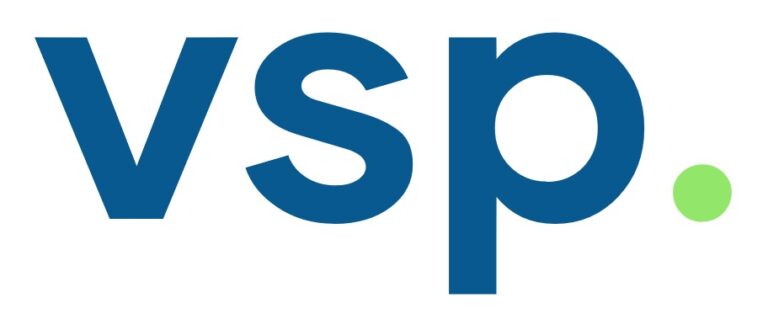Streamline Your Business Processes with Advanced Management Information Systems Solutions

Management Information Systems (MIS) are indispensable tools for organizations, enabling efficient management of resources, data-driven decision-making, and streamlined operations. In today’s fast-paced business environment, companies rely on MIS to enhance their competitive edge and achieve operational excellence.
What is an Management Information Systems ?
A Management Information System (MIS) is a structured system for collecting, processing, storing, and disseminating data. It transforms raw data into meaningful information, facilitating effective planning, control, and decision-making within an organization.
MIS integrates technology, people, and processes to support business strategies. From tracking daily operations to generating detailed reports, Management Information System plays a pivotal role in managing complex business functions.
Key Components of Management Information System
- Hardware
The physical devices such as computers, servers, and networking equipment that support the system.
Example: A retail company uses barcode scanners and POS systems to feed sales data into the MIS.
- Software
Applications and tools that process and analyze data. These include ERP systems, CRM software, and reporting tools.
Example: A manufacturing firm uses SAP ERP for inventory management and production planning.
- Data
The raw input that forms the foundation of the MIS. Data can come from internal operations, market research, or external sources.
Example: A logistics company uses data from GPS trackers to optimize delivery routes.
- Processes
The methodologies and workflows used to collect, process, and interpret data.
Example: A finance department follows a monthly process of reconciling accounts and generating MIS reports.
- People
The users and administrators who operate and utilize the system to make decisions.
Example: Business analysts leverage MIS dashboards to identify trends and anomalies in sales performance.
Functions of Management Information System
- Data Collection and Storage: MIS gathers data from various sources and stores it securely for future use.
Example: An e-commerce platform collects customer data to personalize shopping experiences.
- Data Processing: Converts raw data into actionable insights through computations, analysis, and summaries.
Example: A bank uses MIS to calculate customer credit scores based on transaction history.
- Report Generation: Produces comprehensive reports for operational, tactical, and strategic decision-making.
Example: A telecom company generates daily reports on network usage and downtime.
- Decision Support: Provides insights and tools that aid in making informed decisions.
Example: A marketing team uses MIS to identify the ROI of various advertising campaigns.
- Control and Monitoring: Ensures business activities align with strategic goals and identifies deviations.
Example: An airline monitors ticket sales and adjusts pricing dynamically through MIS.
Benefits of Management Information System
- Improved Decision-Making
MIS provides accurate and timely data, enabling leaders to make informed decisions.
Example: A retail chain optimized inventory levels based on real-time sales data from its MIS.
- Enhanced Operational Efficiency
Automates repetitive tasks, reducing errors and saving time.
Example: An HR department streamlined payroll processing using an integrated MIS. - Better Resource Management
Helps allocate resources efficiently by analyzing performance metrics.
Example: A manufacturing company reduced energy costs by monitoring machine usage through MIS. - Increased Productivity: Simplifies complex processes and provides employees with tools to perform better.
Example: A sales team used a CRM-integrated MIS to track leads, improving conversion rates.
- Compliance and Risk Management
Ensures adherence to regulatory requirements and minimizes risks through consistent monitoring.
Example: A financial firm used MIS to comply with reporting standards like IFRS and GAAP. - Strategic Planning
Provides insights for long-term planning, market analysis, and competitive strategy.
Example: A logistics company used MIS data to plan its expansion into new markets.
Challenges in Implementing MIS
- High Initial Costs
Implementing an MIS requires significant investment in hardware, software, and training.
Example: A small business struggled to adopt an ERP system due to budget constraints. - Data Security Risks
MIS systems are vulnerable to cyberattacks and data breaches.
Example: A healthcare provider faced challenges in securing patient data during system upgrades. - Complexity and Integration
Integrating MIS with existing systems can be complex and time-consuming.
Example: A company faced delays integrating its CRM with a newly installed ERP system. - Resistance to Change
Employees may be reluctant to adopt new technologies.
Example: A traditional manufacturing firm encountered employee resistance when transitioning to an automated Management Information System.
Conclusion
Management Information System are the cornerstone of modern business operations, offering invaluable support in data management, decision-making, and strategic planning. While implementation may pose challenges, the benefits far outweigh the costs, enabling organizations to optimize performance, reduce inefficiencies, and stay competitive in an increasingly data-driven world.
Whether you’re a small business or a large enterprise, adopting the right MIS solution can propel your organization to new heights.
Start your journey towards smarter business management with an MIS system today!
To learn more about our services, explore our blogs and visit the services page on our website, Delve into expert insights, success stories, and practical strategies tailored to your financial needs. Our blogs provide a comprehensive understanding of the solutions designed to secure your future and optimize your financial journey.
Let’s turn your vision into reality—reach out now!
FAQs About MIS Systems
1. What is an MIS system?
MIS (Management Information System) is a framework for collecting, processing, and analyzing data to support decision-making and business operations.
2. Why is MIS important?
MIS enables businesses to make informed decisions, improve efficiency, and maintain a competitive edge.
3. Can small businesses benefit from MIS?
Yes, small businesses can use cloud-based or modular MIS solutions to improve operations without significant upfront investment.
4. Is MIS limited to large enterprises?
No, MIS is scalable and can be customized to suit the needs of any organization, regardless of size.
5. How does MIS differ from ERP?
While MIS focuses on decision-making and reporting, ERP integrates core business processes for seamless operations.
